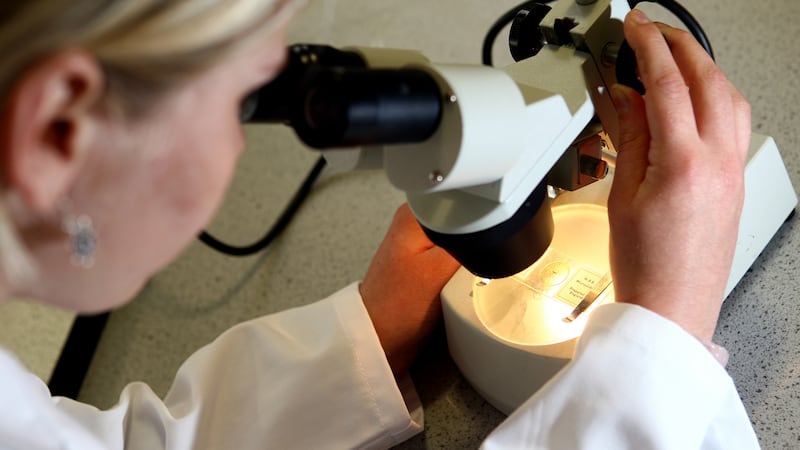If it wasn’t for people like Martin McGuinness there wouldn’t have been any need for a peace process. This has been voiced strongly by many unionists and at times by those who have never been, or have never lived in this six county state. As reasonable as it sounds, it misses the point. The tragedy of the 50 years from the setup of the Northern Parliament 1920/21 to its dissolution in 1972, show how moderate nationalists and Catholics could be turned into militant republicans. In fact it was a Protestant state for Protestant people with 50 years unbroken domination.
The schism, terror and despair, with bigotry and gerrymandering during that period were something nationalists had to endure and endured they did. From the early years with nationalist leaders such as Joe Devlin and Thomas Campbell to the later years with Joe Stewart and Eddie McAteer, a form of one-sided politics was carried out. At times nationalists pursued a policy, if you called it that, of intermittent and erratic abstentionism.
The nationalists expressed themselves most bitterly when Joe Devlin said unionists had opponents willing to cooperate. Nationalists did not seek office. They sought service. They where willing to help. But the unionist rejected all friendly offers. They went on the old political lines, fostering hatred, keeping one third of the population as if they were pariahs in the community.
In the later years Eddie McAteer, who in his time laid the nationalist as the official opposition party in the six counties parliament, said it was like banging your head against a brick wall. Any time the nationalists began to speak, the unionists would all get up and go out to the bar. They were just wasting your time.
In the1960s the emergence of a civil rights movement owed much to the expansion of a Catholic middle-class and highly articulate people, largely as a result of the 1947 Education Act. The civil rights movement did not capture nationalist imagination, although there were signs that apathy was breaking down. But the mood of the Catholic population was changing when marches were being banned and attacked by the RUC and B-Special forces.
At this time the lesson that Martin McGuinness and young people like him took, was that peaceful protests where not going to change things. Hovering around in the background was the IRA, waiting to capitalise on the crisis. They appealed to people to join the movement.
Martin McGuinness and many young people like him did join.
In conclusion, Martin McGuinness fought his battles and like many other freedom fighters before him moved from a violent struggle to a peaceful struggle by political and democratic means. And in doing so he brought many others with him, politicians and ordinary people.
JAMES G BARRY
Templeogue, Dublin 6
School for slow learners is closed indefinitely
It appears commentators from various media outlets and others are struggling to interpret the breakdown of talks regarding the restoration of the Stormont hill project. Opinions vary on who is to blame for the impasse. Some accuse Sinn Féin. Others blame the DUP. However, if one cares to take a moment to reflect on past/current events this speculative critique could, if properly applied, be omitted as one explores the facts which illustrate the farcical truth. Sinn Féin were forced to call time on the bungling and alleged corruption occurring from one side of the so-called house. They refused to partake in a government that had at its core allegations of official misconduct while in public administration.
Paul Givan, who does not wish to be friends with anyone, unashamedly practised a form of parochialism where he ensured local projects were given preferential treatment. This parish pump politics guaranteed thousands of pounds of public money to Orange Order halls.
These irregularities the DUP would prefer are to be taken at face value, simply a distraction from the bigger picture.
As the parties mulled around in zombie land after the election the insincerity of the DUP was fully exposed – still wanting and expecting others to dance to their tune.
Eventually Mrs Foster outlined her party’s response ‘the DUP stands ready to continue to discuss how to secure new arrangements for Northern Ireland’ and ‘mandates must be respected’.
It is obvious Arlene and co are missing the bigger picture.
It has been unequivocally impressed upon them what is required in negotiations – recognition of the mandate to fully implement previous arrangements. There is no ambiguity just the implicit realisation that the school for slow learners has been closed indefinitely.
KEVIN McCANN
Belfast BT1
Echoes of a dying past
Val Morgan (April 6) should relax about the prominence given, by The Irish News, to the letters of Robert Sullivan and Maurice Fitzgerald.
After all, their contributions tend to be well written as they should be given the practice they’ve had over the years, essentially saying the same thing. I, also, was at one time surprised that Irishmen could so consistently deride their country while singing the praises of an invader and thought that perhaps they were nothing more than ungrateful immigrants. Later I became convinced they were Gregory Campbell and Nelson McCausland writing under pen names, but the opinions expressed seemed a little extreme even for these worthy gentlemen.
My latest theory is that in the way of Michael Stones’s attempted incursion into Stormont they are engaged in a generational art installation and will one day reveal themselves as Turner prize winners. After all it is an artist’s duty to vigorously challenge our obvious view of the world and Robert and Maurice’s work certainly evokes controversy.
Val should treat future, probably similar, offerings from Cork as the echoes of a dying past.
He should not chide the letters editor for featuring such utterings, but instead suggest that it might be kinder to put them where they belong in the ‘On This Day’ page.
GERARD HERDMAN
Belfast BT11
Trapped inside EU’s gold stars
One of my sweetest treats when I go to the UK these days is the noticeable absence of the EU flag of dictatorship flying alongside their flag of St George and Union flag on top of government buildings and indeed outside hotels and other buildings.
They are going, going with a vengeance – it will soon be as difficult to find an EU flag in Britain as it is to find one on the island of Manhattan.
Happy days for them, while the other member states, especially Ireland, are trapped inside those remaining gold stars which has the ring of fascism about it as a representation of quasi unity, rejecting the idea of the nation state –except of course, Germany and France, which see their countries as the overlords.
ROBERT SULLIVAN
Bantry, Co Cork
Well done, Anne Hailes
Thanks to Anne Hailes for a very moving article on the work of War on Want Northern Ireland in Uganda (April 3).
It is so refreshing to see a local charity being highlighted when so often it is the large national charities with their considerable advertising budgets that get the headlines.
War on Want NI, which many of us know through its charity shops, has been providing grass roots support in Africa for more than half a century. In an age when many small charities are being squeezed out of existence it is important that we continue to encourage and support local efforts to help those in need around the world.
Well done Anne Hailes. Well done War on Want.
Rev Dr JIM CAMPBELL
Belfast BT5







